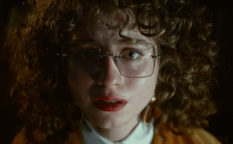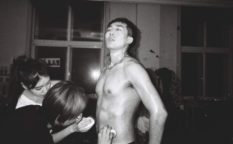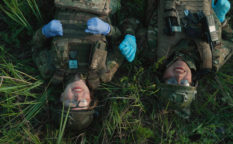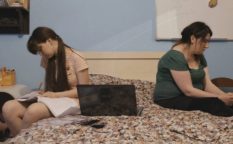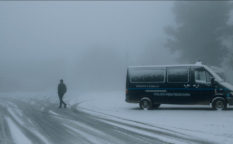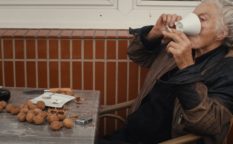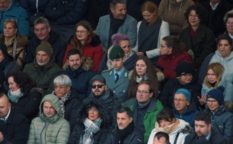Review: Savegame (2018), by Diana Kaiser
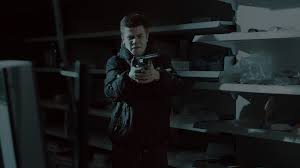
Living in a second skin in the world of gaming is the core of Diana Kaiser’s directorial debut Savegame that provides the viewer with the privilege of a personal interpretation of what’s the Earthly- and what the virtual life.
The film opens with a scene of a typical family dinner with simple things being discussed over a steaming stew and wine, like how somebody’s day was. When the father (Enno Kalisch) aims exactly that type of question at his son (Leon Seidel), the conversation turns into the teenager’s passionate talk about the game “everyone he knows is playing” and that he is quite good at. “Talent” he calls it, and the short sequences are showing him shooting at the enemy in a looted supermarket of an obviously post-apocalyptic world in which the most bitter battle seems to be the one for food.
Moments later, the environment is completely changed, and the youngster seeks a secure corner of the store to put his VR goggles on. The picture of the ideal family dinner gets distorted in a manner of a TV set with bad reception, and the ultimate warning of the film is that one should never run low on batteries.

Kaiser offers a reverse scenario of the future, in which we might want to simulate normality in order to escape the dread of our everyday lives. At the moment, it’s still an unthinkable possibility, as the gaming industry is feeding on the concept of an undefined future filled with terror in which humankind fights all kinds of dangers from natural catastrophes, zombies, aliens or armed forces. Shooting an enemy is something an average white Caucasian still consumes as a gaming fun, delusional in the comfort of their democratic environment.
Savegame is a mild reminder that we may easily run out of most privileges we grew up with, and end up struggling to survive without simulators of happiness. The film was screened in the /slash film festival Short Film Competition.
Country: Germany
Language: German
Running Time: 5′
Director/ Editor: Diana Kaiser
Script: Julian Börger
Producers: Diana Kaiser, Kerstin Blumberg
Cinematographer: Max Jonas Fohrbeck
Music: Ben Blume
Set Design: Marcel Knöschens
Makeup Artist: Carla Bellgardt
Sound Department: Pascal Bayrasy, Philipp von Kiedrowski









